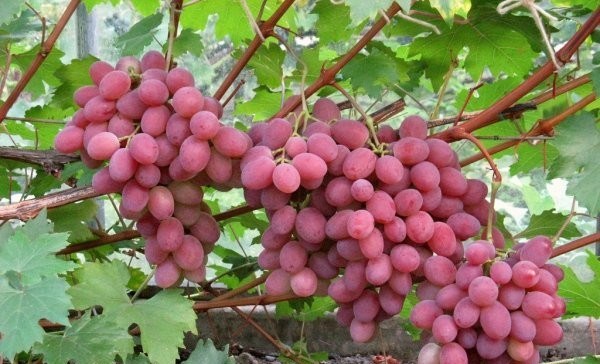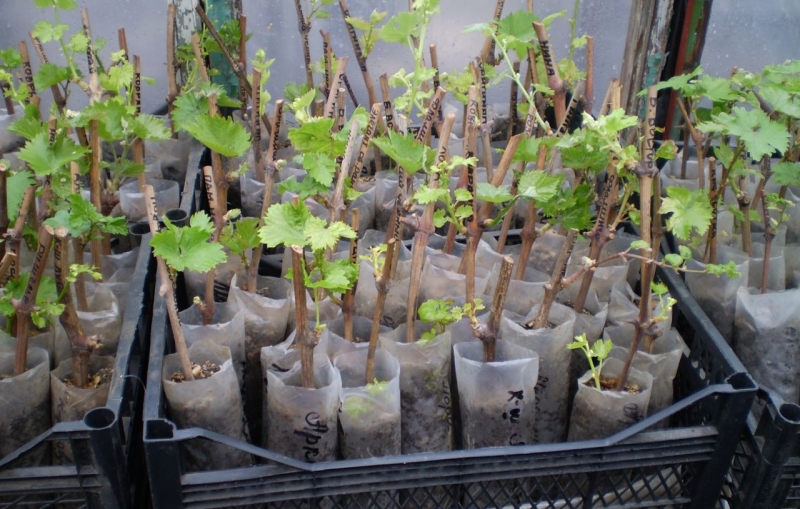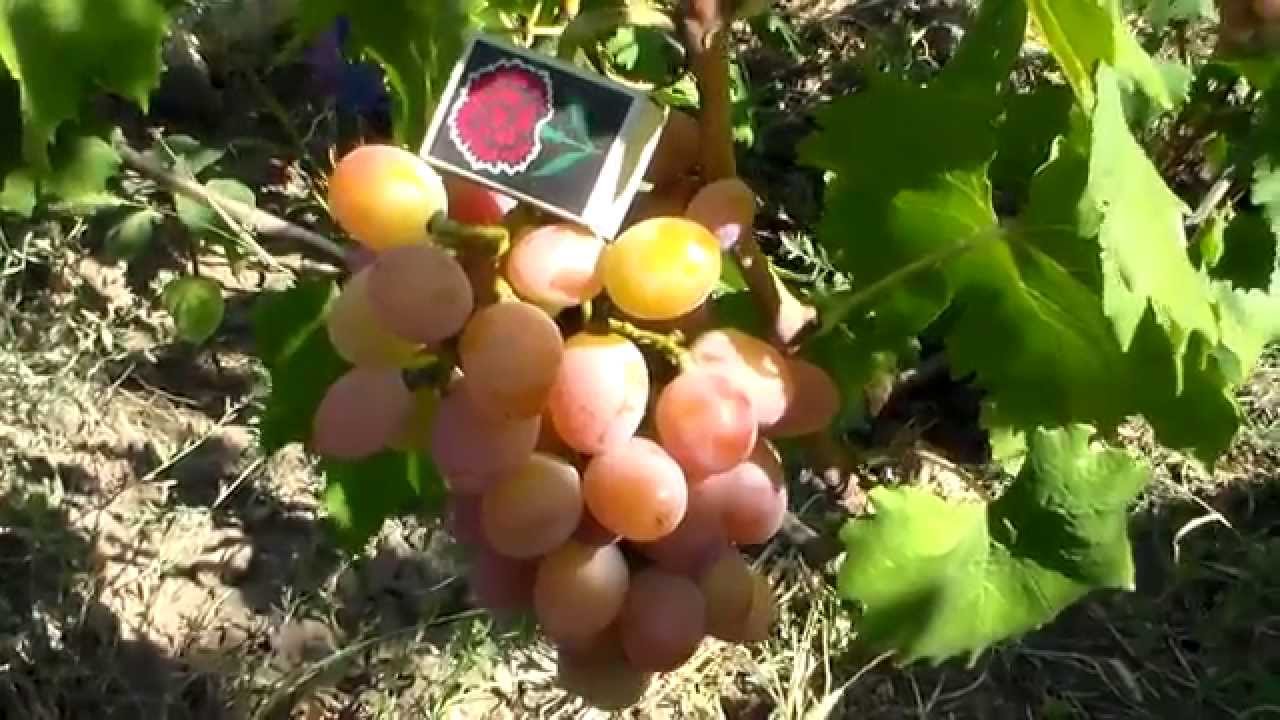Content:
As in any other agricultural culture, selection in viticulture allows you to get new varieties of plants with improved characteristics. The grape variety, bred by the non-professional breeder V.N.Krainov, received such good qualities that it soon became popular among both beginners and professionals in the field of viticulture. Obtained by crossing grapes Kishmish Radiant and Talisman (another name Kesha 1) and named by the diminutive form of the female name Anna, the grape variety Anyuta inherited the best characteristics from its "parents".
Anyuta grapes: description and features of the variety
Anyuta table grape is known for its survival rate and fast growth rates. The height of a highly branched bush can reach 3 m, therefore, before planting this variety, it is recommended to provide for the creation of a reliable support for an adult plant. The first fruits will appear 5 years after the seedling takes root.
Fruit
Large berries are similar in size to small apricots or plums. The weight of one berry fluctuates around 15-25 g. The grapes are collected in large cone-shaped clusters weighing up to one and a half kg. Anyuta's bunches do not hold their shape well and are rather loose in structure due to the loose arrangement of the berries.
Dark pink berries are famous for their excellent taste. Experts consider the presence of nutmeg in the aroma of grapes to be weak, but when the fruit is overripe, a pronounced nutmeg aroma appears. The sweetness inherited from Kishmish Radiant is diluted with a slight sourness of the Talisman, which gave the heiress taste and the presence of 4 seeds in each berry. The fruits have a dense skin that protects against wasps and other pests, but does not spoil the taste. The impatient skin is invisible when eaten, despite the fact that the berries themselves are tender, juicy, sometimes even slightly watery.
Yield
Anyuta took over grapes from Talisman and such a varietal feature as an extremely high yield. A plant of a medium-late ripening type, from the moment of ovary to ripeness of its fruits, at least 140 days in the southern regions and 150 days in areas with moderate climatic conditions must pass. The traditional harvest time for Anyuta is the second half of September.
Frost resistance
The variety is characterized by good frost resistance. According to winegrowers, the plant is able to withstand frost down to -23 ° C. This makes it possible to grow it not only in southern latitudes, but also in cooler regions (central parts of Russia and Ukraine). If in the region where grapes are grown there are large differences in day and night temperatures (as, for example, in the Moscow region), the berries will have a rich pink color than those grown at even temperatures.
Bloom
Anyuta's flowers are bisexual, which facilitates and improves pollination. Dangerous enemies of the future harvest are rain and dampness during flowering and ovary formation. It happens that due to prolonged rains and the impossibility of pollination of flowers, plants do not bear fruit, which is typical not only for this variety.
Growing technology
Landing
Anyuta grapes are famous for their good survival rate and rooting, so the plant is not demanding on growing conditions.Planting is recommended to be done in moderately warm soil warmed up to 9-10 ° C.
It is advisable to put grape seedlings in water for a while in order to saturate their root system with water before planting. However, after planting, the soil should not be waterlogged, as this can lead to root rot. In the future, watering will be possible only after making sure that the soil around the trunk has time to dry.
The correct arrangement of a pit for planting a seedling will also help to avoid further waterlogging of the soil:
- a layer of rubble must be poured at the bottom of the pit, which will serve as drainage with excessive soil moisture;
- a layer of humus should be poured on top of the rubble, and fertilizers containing phosphorus, potassium and iron should be applied;
- the top layer of soil should be poured so that the root collar of the seedling is located above the surface of the soil and is not buried.
Care
Anyuta forms a three-meter lash, and the ovaries and subsequently clusters are formed, as a rule, high on the vine. When pruning in autumn, the vine should be reduced by 8 (maximum 10) buds. There should be about 30 buds for 20 shoots.
Because of the good yields of this grape variety, it should be tied up in order to reduce stress on the bush and reduce the likelihood of breaking.
Advantages and disadvantages of the variety
Anyuta grapes have many advantages:
- high yield (large berries are collected in equally large and heavy bunches);
- the dense skin of the berries makes them suitable for transportation and long-term storage, and the attractive appearance of the grapes contributes to its successful sales;
- grapes reproduce well by cuttings and grafting on the stock, rarely freezes;
- has a high resistance to disease and pests.
But, oddly enough, some of the advantages of the variety can also become its disadvantage:
- high yield and severity of fruits are traumatic, without a garter and support, the bush can break;
- the variety has an unstable ripening period, moreover, depending on the weather, the period may differ from year to year;
- Anyuta berries are prone to cracking at high humidity in the vineyard during their ripening period;
- is affected by gray rot first from the inside of the bunch, which makes it difficult to detect the disease.
Summing up, we can say that the creation of high-quality creations is not always available to professionals. An example of this is the work of amateur breeders (Krainov, Pavlovsky), who have won many international awards and, most importantly, the love of people who grow these varieties from year to year. And the variety Anyuta confirms this.
















